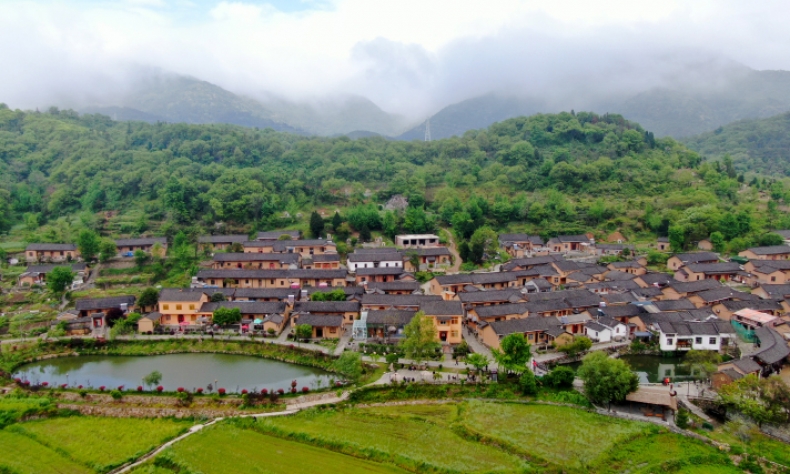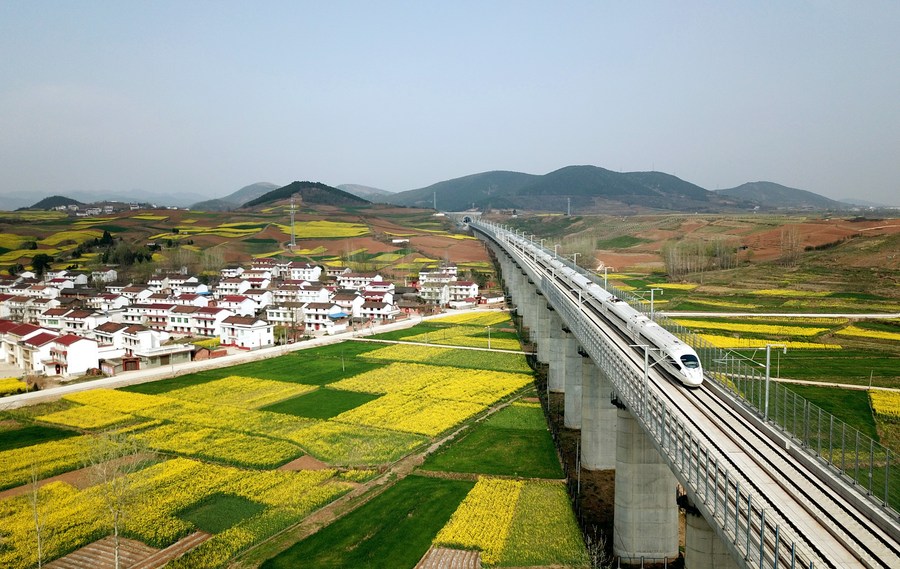Role of CPC in Leading Chinese People to Independence and Modernization

In a hundred years, the CPC has gained considerable experience in solving practical problems and more importantly, has put this experience in the world public domain through cooperation with several political parties especially in the developing countries including Africa.
The Communist Party of China (CPC), founded in July 1921, is celebrating its centenary anniversary this month. The party was founded against the backdrop of what the Chinese called a “century of humiliation” in reference to the 19th century when the country was overrun by foreign powers. Despite the collapse of the feudal system that existed for thousands of years and the establishment of a republic in 1911, the problems of the country remained. The fruits of the 1911 revolution that swept away the Qing Dynasty (1636-1912) were quickly grabbed by warlords who continued to ally with foreign powers.
The decisive moment of national awakening actually came with the May Fourth Movement, when national grief turned into defiance following the failure of the victorious imperialist powers’ conference in Paris to restore some of China’s national treasures. Instead, the conference carved up the country into their spheres of influence. The failure of the Paris peace conference to ameliorate China’s national condition provided the historical catalyst for anti-imperialist resistance.
With the echoes of the victory of the Russian Bolshevik revolution in 1917 and the lively debate among the Chinese intelligentsia about the theory of Marxism-Leninism and its fitness to drive sustainable struggle for national independence and peoples liberation, the founding of the CPC was both epochal and game-changing in the trajectories of China’s national destiny previously hobbled by the stranglehood of feudalist rule and imperialist oppression.
Road of modernization
Through a relentless revolutionary struggle guided by the theory of Marxism-Leninism, the CPC forged a patriotic united front of all Chinese people across all social strata and ethnic groups and founded the People’s Republic of China in 1949, bringing to an end both the century of national humiliation and the turmoil of warlord rule and ineffectual bureaucratic capitalism.
The challenge of construction, stability and modernization of New China became the crucial and vital endeavor of the Chinese people from all walks of life and different political persuasion under the leadership of the CPC. The historical choice of the CPC as the core of the national leadership in a broad coalition of the patriotic alliance of people of all walks of life helped to galvanize unity of purpose, distilled national priorities, and sharpened focus on critical variables necessary to drive modernization on a sustainable basis.
An important turning point in the national construction effort of modern China came in the last month of 1978 at the Third Plenary Session of the 11th Central Committee of the CPC, when it adopted economic construction as the main focus of the work of the Party and the government.
The main contents of this decision were reform and opening up to the outside world. This decisive moment in the history of the Party and the country aroused a nationwide enthusiasm, cementing the reputation of the CPC not only as a party with a glorious past but one that is engaged in the present and has a vision for the future.
Re-affirming its Marxist-Leninist theoretical foundation, the Party proclaimed that its insights that guided its trajectories through revolution, reconstruction and reform were gained from its devotion to Marxist-Leninist theory of scientific socialism. The Party said the Marxist-Leninist theory enabled it to gain a realistic insight into China’s unique national and historical condition and that its construction of socialism with Chinese characteristics which is the theoretical rationale for its reform and opening up, corresponds to the country’s existential reality and the trend of the time.
The outcome of this rigorous and exerting process of “seeking truth from facts” was the awe-inspiring comprehensive growth of China’s national aggregates that most of the world have come to know and describe as “Chinese miracle,” which was actually not a miracle but an outcome of the efforts of a party in touch with the people and, more importantly, in touch with reality, which it constantly evaluates in the light of new conditions and circumstances.

Entering the new era
As 1978 was epochal and pivotal in the history of the Party and the country, the 18th National Congress of the CPC in 2012 was a vital historical turning point. The election of Xi Jinping first as the general secretary of the CPC Central Committee and subsequently as president of the country in March 2013 brought new confidence and renewed vigor in the Party. After Xi took over as the general secretary of the CPC Central Committee, one of the tasks of the Party and the government was the elimination and eradication of absolute poverty that have ravaged the country for millennia. In eight years and just in time before the 100th anniversary of the founding of the Party, nearly 100 million Chinese have been lifted from absolute poverty, leading the country to its current stage of moderate prosperity in all respects for all Chinese people.
In engaging with the new realities and the past and present national conditions, the Party has followed its tradition of developing a theoretical guide to its work. The Xi Jinping Thought on Socialism with Chinese Characteristics for a New Era represents the Party’s theoretical innovation and a national rallying point to deepen the reforms in the ceaseless effort at modernization and rejuvenation. It is the profound outcome of the toil and exertion of the Party.
Participation in global governance
Already, the CPC has articulated critical and important initiatives for inclusive and participatory global governance, providing important inputs to consolidate the emerging international order of multilateralism and the centrality of the United Nations system in international affairs. Through the Belt and Road Initiative, a global framework of cooperation featuring infrastructure connectivity and people to people contacts, the Party and the Chinese people have opened a new vista of opportunity to construct a community of shared future for all humanity.
The visible and enigmatic profile of the contemporary China-Africa cooperation was the culmination of the steady vision of the Party since the founding of the People’s Republic of China in 1949, that China and Africa are bound by the pains and grief of common victimization by imperialist domination and brutal colonial exploitation and are destined to work together to achieve economic self-reliance and prosperity for their respective peoples.
In a hundred years, the CPC has gained considerable experience in solving practical problems and more importantly, has put this experience in the world public domain through cooperation with several political parties especially in the developing countries including Africa.
It is therefore hoped that political parties in Africa would soberly study the experience of the CPC and draw important lessons to improve their capacities and capabilities in seeking solutions to the challenge of unlocking their respective national potential and improving the qualities of life of their respective peoples.
Charles Onunaiju is director of the Center for China Studies in Abuja, Nigeria.
 Facebook
Facebook
 Twitter
Twitter
 Linkedin
Linkedin
 Google +
Google +










